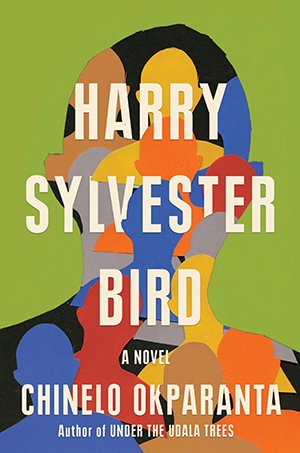Author Chinelo Okparanta’s Satirical Novel Explores Black African Experience in America

Image by Kelechi Okere
With her new novel, Harry Sylvester Bird, Associate Professor of English and Director of the Creative Writing Program Chinelo Okparanta wanted to write a book she had never read before: a story about the Black African experience in America written by an African woman through the lens of a white American who identifies as a Black African man.
Written as a political satire, Okparanta felt the genre would be the best way to write about the major themes of race and racism while allowing for humor and experimentation.
“It was important for me to approach the novel this way in order to show the multiple layers that racism and white supremacy can take, and how even liberalism, taken too far, can lose sight of itself,” says Okparanta.
Harry Sylvester Bird is the highly-anticipated follow-up to Okparanta’s debut novel, Under the Udala Trees, which explored the lives and struggles of LGBTQ Nigerians. It was released to widespread acclaim in 2015, with The New York Times naming it as an Editor’s Choice. For Harry Sylvester Bird, Okparanta has been profiled in The New York Times, and Esquire, Cosmopolitan, and Literary Hub have included the novel on their summer reading lists. She also spoke with Asali Solomon for an author event at the Free Library of Philadelphia.
The story of Harry Sylvester Bird, a white teenager living in the fictional town of Edward, Pa., begins when he is on vacation in Tanzania with his racist, xenophobic parents and starts to identify more with the Tanzanians he meets than with his own family. A few years later, Harry moves to New York City for college, becomes estranged from his parents, and falls in love with a Nigerian immigrant, Maryam. Maryam and Harry study abroad in Ghana where Harry is forced to wrestle with his identity.
Okparanta wrote Harry as a sympathetic character who is aware the ways of his family and small town are wrong, but still finds himself struggling with the inherited burden of racist beliefs, morals, and values passed down from generation to generation. Okparanta believes such burdens are not only felt on an individual or familial level but also societally and globally.
 Harry Sylvester Bird is available everywhere July 12.
Harry Sylvester Bird is available everywhere July 12. “Harry is, in a way, a representation of the American society as a whole, which has had to live under the shadow of the racial atrocity that was the transatlantic slave trade, which was very different and far more expansive than any other kind of slavery going on at the time, or ever,” explains Okparanta. “Recurrent issues of racial prejudice continue to haunt American society, and sometimes it seems that the country is, like Harry, really struggling to move forward from the burden of its history.”
Okparanta also wanted to upend the white gaze found throughout literature when white authors inaccurately portray Africa and African culture and society for white audiences. She sought to instead write with a Black African’s gaze on white America.
“In this novel, a Black African writer gets to describe parts of Africa in a manner that does not primarily focus on the areas of poverty and degradation, and in a way that does not make well-intentioned references to the people as backward, or savages, or barbaric, etc,” says Okparanta. Instead, this novel more holistically captures the beauty and blemishes of the continent and the goodness that are its people.
Before joining the faculty of Swarthmore in the fall of 2021, Okparanta held faculty appointments at Columbia, Howard, and Middlebury. As director of the Creative Writing Program, Okparanta aims to continue fostering a learning environment that engages Swarthmore students in important social and political questions by way of literature and their own writing. She hopes to build the existing program into something even more dynamic and full: a program that demystifies the creative writing process as well as creative writing as a career path.
“Fundamentally, [Harry Sylvester Bird] is a satirical critique of the kind of whiteness that centers itself in issues of race and racism, despite its best intentions, to the detriment of the disenfranchised groups,” says Okparanta. “The angle of entry into the novel is different from what might be conventionally expected, but it addresses the issue of the white gaze all the same.”


